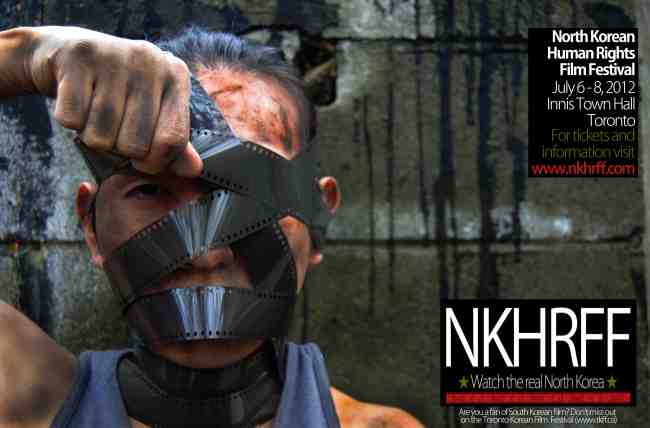From July 6-8 the Innis Town Hall in Toronto will play host to North America’s first North Korean Human Rights Film Festival, organized by some former residents of South Korea.
Two of the event’s co-organizers, Gilad Cohen and Michelle Ragno, took an interest in North Korean human rights after visits to the Korean Peninsula.
For Cohen it started in 2008 with a trip to the Gaeseong Industrial Region, the special administrative zone of the North where it has cooperated with South Korea on manufacturing since late 2004.
“Upon returning from this trip, I couldn’t shake the eerie feeling that something was wrong,” Cohen said. “No matter how much the North Koreans tried to paint a picture of a perfect society, there was an underlying feeling of uneasiness. Upon returning to South Korea, I did a lot of research on North Korea and what I learned shocked me.”
Upon learning about the North’s human rights record, Cohen was inspired to help raise awareness of the abuses. His work has included stints interning with human rights organizations both in Canada and South Korea.
 |
Promotional image for the North Korean Human Rights Film Festival in Toronto |
“I understand that I don’t have the power to go into North Korea and change the way the society works, nor do I have the power to change the dire situation; but I do have the power to tell others and to raise awareness and this is why we’ve decided to launch the North Korean Human Rights Film Festival,” Cohen said.
Ragno joined him in the project, having taken an interest in the subject after spending two years in South Korea teaching.
“I have always been one to believe that awareness leads to action,” she said. “It may take a long time, but as more people become aware of the real situation in North Korea, the more likely people will be to take a stand and put pressure on their government to put North Korean human rights on the agenda.”
The event’s third co-organizer is Liya Choi, originally from South Korea, who played a big role in coordinating the event with Korean speakers, such as film directors and distributors.
“I firmly trust that the media of film is a potent tool to communicate with people, and I really hope that people will become more aware of North Korean human rights issues through our film festival,” Choi said.
The event starts at 7 p.m. on Friday with “Winter Butterfly,” directed by North Korean defector Kim Gyoo-min. The following day, viewers can catch a preview of “The Defector,” by Ann Shin at 3:30 p.m. The film is set to be completed by fall, and Shin will be on hand at the venue to answer questions about it.
Documentaries from the middle of the last decade round out Saturday’s events, as Yang Young-hee’s 2005 film “Dear Pyongyang” follows at 6:30 p.m., with Raphael Wilking and Hans van Dijk’s 2006 film “Friends of Kim” starting at 9 p.m.
On Sunday, the festival concludes with three films. First up at 1 p.m. is “Tiger Spirit: A Reunification Road Trip Through the Two Koreas” by Toronto resident Min Sook Lee, who will be present to answer questions. At 4 p.m. will be “Goodbye Pyongyang,” followed by “Crossing” at 6:30 p.m. Once the films are finished, the festival concludes with testimony from a North Korean defector.
More can be learned at the festival’s website, http://www.nkhrff.com.
By Rob York (
rjamesyork@gmail.com)








